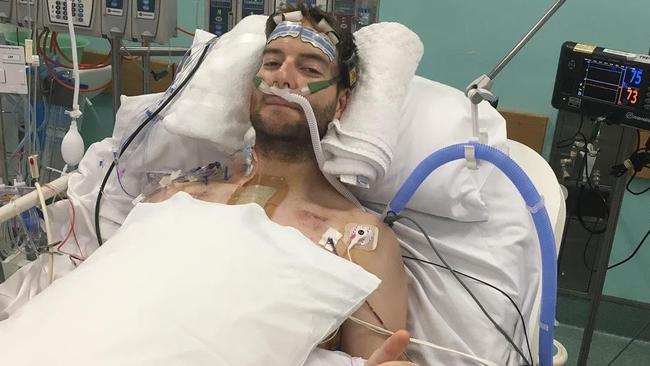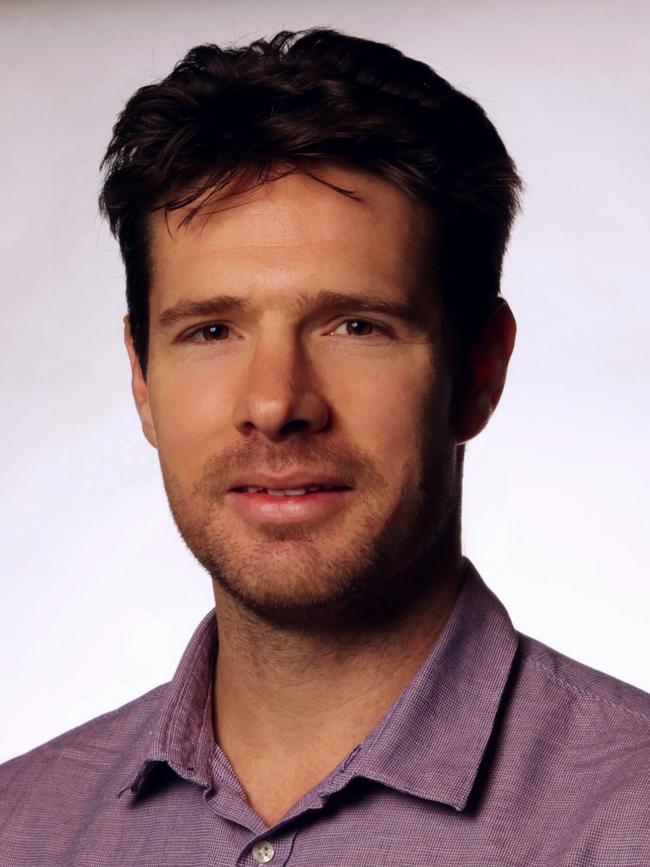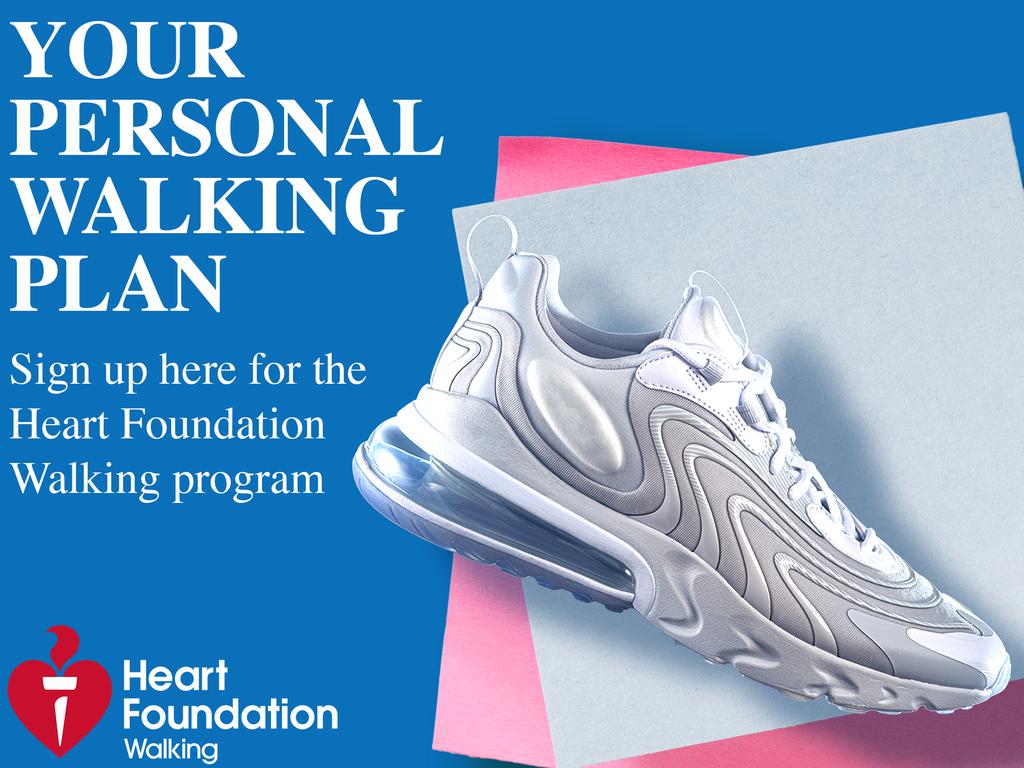‘If we don’t operate, you’ll die’: The night Geoff’s life changed forever
In less than two hours, Geoff Lester went from seemingly fit and healthy to being told he would die without immediate surgery. Exercise has been crucial to his recovery.

When Geoff Lester suddenly felt dizzy while refereeing a basketball game in Brisbane, the then 24-year-old didn’t make much of it. When the spell hadn’t passed an hour later, a friend insisted he go to the emergency department of the closest hospital.
It was an insistence that might have saved his life.
“I presented to the triage desk and as I was in the middle of explaining my symptoms I had a sudden onset of pain … and the pain was so severe that it floored me and I couldn’t get up. The nurse at the triage desk pressed the red buzzer, and all these people came running from out of the back to the front of the ED waiting room, picked me up and put me on a gurney.”
Medical scans revealed Lester was gravely ill and required emergency surgery to survive.
“I had an astute emergency doctor who performed a CT scan … he came back in to speak to me and said: ‘You’ve got a dissected aorta and it’s tearing apart.’ ”
The condition can compromise blood flow to vital organs, and even with surgery there was a chance he already had organ damage or could suffer a stroke and die. He was transferred to Brisbane’s cardiac hospital, where a specialist medical team quickly assembled.
“The surgeon said to me: ‘If we don’t operate, you’ll die,’ ” he recalls.
Then Lester had to call his family and tell them he might not make it through the night. “I wouldn’t wish it on anyone to make that phone call and I’m sure my family would say they wouldn’t wish it on anyone to receive that phone call. From seemingly fit and healthy to that in the space of, kind of, an hour and a half was a huge shock.”
When the condition occurs in younger people, it is typically the result of a genetic disorder. In older people, it is likelier to be caused by lifestyle factors such as high cholesterol and blood pressure. Lester’s cause was genetic and his surgery was a success, but eight weeks later he had a second event that also required heart surgery.
Lester had many questions about his condition but there were so few answers that it prompted him to switch degrees from economics to medicine.
“I wanted to find out how and why this happens to people and how to stop it happening to others. I wanted to give others the same opportunities out of life and the second and third opportunities that I just been given.”
Lester is now a cardiovascular physician advanced trainee at Alfred Hospital in Melbourne, a research fellow at Sydney Marfan and Aortic Clinic and a national ambassador of the Heart Foundation of Australia.
For this week’s look at walking, in partnership with the Heart Foundation, we examine the benefits of exercise in disease prevention and injury recovery.
It’s something Lester has experience in. Since that first episode, 15 years ago, he has had four open-heart surgeries, suffered two strokes and has three burr holes made in his skull to relieve pressure from a blood clot. He has been stable for several years now but, because his condition is genetic, he is limited in what he can do to prevent repeat future attacks. Instead, he focuses on being otherwise fit and healthy to give himself the best chance of survival and recovery.
“I keep fit and eat well and live well, essentially at the gym four times a week, doing high-intensity classes this morning,” Lester says. “I’m one of the lucky ones who’ve got all my limbs working and full cognitive function.”
But getting to this stage has taken hard work, determination and planning. After each medical episode, Lester’s recovery begins with a walking plan under close medical guidance. After all, he says, you need to walk before you can run.
The Heart Foundation agrees, suggesting patients consult with a doctor before resuming exercise after illness, though it says people may be able to do so within a few weeks of a heart attack depending on their level of injury.
It also says it’s important patients be guided by how they feel and rest if they experience a sudden onset of pain, extreme tiredness, dizziness or shortness of breath, adding “cardiac rehab is a great way to get your fitness back on track”.
That’s certainly the finding of Paddy Dempsey, who is a research fellow with the Institute for Physical Activity and Nutrition at Deakin University and works in collaboration with the Baker Heart and Diabetes Institute.
His research focuses on how movement patterns influence health outcomes and he says evidence shows exercise helps to prevent some diseases and improves recovery from injury and surgery.
“Regular physical activity can reduce the risk of cardiovascular disease, type 2 diabetes and some cancers by up to 30 to 50 per cent. For recovery, exercise has been shown to improve functional outcomes, reduce the risk of complications and shorten recovery times.
“Walking, as a low-impact activity, has been linked to a 31 per cent reduction in cardiovascular disease mortality in active individuals compared to inactive ones.”
Dempsey advises people who are recovering from illness or injury to seek medical guidance as they work to increase their physical fitness and ensure they have an individualised exercise plan.
“The key is to gradually reintroduce movement based on medical advice tailored to the individual’s condition. Walking is often an excellent starting point as it is readily accessible, gentle and adaptable.
“Patients should focus on short, frequent sessions, listen to their bodies and prioritise consistency over intensity. Working with a physiotherapist or an exercise professional can help ensure the approach is safe and effective.”

That was the strategy adopted by Lester, who uses walking to start building his fitness.
“The ability for me to do a 45-minute gym class every day now is the result of having started from walking. The first step is to walk to the front of the ward, then the next day you’re walking to the end of the corridor, and then the next day after that you’re walking down to the front of reception.
“With each passing week, that walking distance and speed gets greater and greater.”
For Lester, his focus is on the future. He and his wife, who met during medical school, are now expecting their first baby.
“Life’s pretty good and I’m thankful, particularly when I see patients not only with the disease that I have but other cardiovascular diseases who haven’t fared as well as I have. So I’m absolutely grateful.
“I was unlucky enough to find my purpose at the age of 24. While I wouldn’t wish it on anybody, I wouldn’t change it for the world.”






To join the conversation, please log in. Don't have an account? Register
Join the conversation, you are commenting as Logout